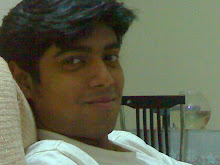'I don't approve of today's Naxals'
Published in DNA on May 1, 2006
It is difficult to imagine Kanu Sanyal as a pacifist. An icon for those who dreamt of social change through armed struggle, Sanyal, along with leader Charu Majumdar and comrades-in-arms Jangal Santhal and Krishna Bhakta Paudial, had, nearly 40 years back, spearheaded the Naxal movement in Bengal. When the movement failed, Santhal died a broken man. Majumdar was ‘killed’ in police custody. Sanyal, 77, lives a quiet life in Naxalbari, a sleepy hamlet in North Bengal, from where the movement had originated and spread like wild fire. In a telephonic interview, he says killing of innocent civilans by Naxals like in Chhattisgarh on Saturday is unpardonable.
Q) 40 years back, the war cry of Naxalites was: “China’s chairman is our chairman.” China has changed. It is said China is communist politically and capitalist economically. So what powers today's Naxal movement?
I accept that the slogan was completely incorrect. Why should we think of Mao Tse Tung as our chairman? It was coined by Charu Majumdar and voiced by the comrades. But that's a minor issue. The problems that gave rise to the Naxal movement at that time were very real. There was a need to take up the cause of the landless farmers. There was a need for an agrarian revolution. Those problems persist even today. And that is what powers Naxalism.
Q) In the late 60s, many students were taken up by the Naxal ideology. Today, their dream is to earn a crore a year, the new benchmark in corporate salary. Waging a class war is the last thing on their mind. How can you make a revolution succeed when the youth are totally disinterested?
After the fall of the Soviet Union, there was a crisis in the Communist movement internationally. China also changed track. But the death knell of the Communist movement hasn't been sounded yet. Look around you. Farmer suicide rates are going up, so-called developmental projects are displacing thousands, MNCs are destroying traditional livelihoods. During the late 60s, college and university students from well-to-do families took to Naxalism. They sacrificed promising careers to pursue a dream. Today, the situation is much worse as there is more inequality. I am sure the youth will not remain cut off from reality for long and would want to change the way things are.
Q) In Naxal-related incidents in recent times, the rate of civilian casualty has gone up. This was something the movement in the 60s strictly tried to avoid. Why target innocent civilians? There are two issues here. Firstly, if there is an armed struggle, there will be casualties. I definitely don't approve the killing of innocents. But then sometimes innocent villagers get accidentally blown up by landmines that were put to annihilate class enemies. Or maybe they die in crossfire. That is unfortunate. Mindless violence, though, should be strictly avoided. There have been cases where Naxals have reportedly killed innocent villagers for turning against them. This is unpardonable.
Q) In South Chattisgarh and in other states, ordinary villagers are becoming special police officers. Villages were your strongholds. Today, even villagers are turning against you.
This is a disturbing trend. Because villages, truly, are our strongholds. If villagers are turning against the Naxals, it is a major cause of concern for the movement. There is a need to mobilise villagers, to show them the path, not antagonise them. Cases have been reported of villagers being tortured when they have refused to do join the movement. In this respect, I do not approve of today's Naxals.
Q) In late 60s, Naxals had no training camps and used hand-made pistols, but captured popular imagination. Now, you have Kalashnikovs and proper co-ordination, but no popular support. Today, even Naxalbari votes. Democracy has made a great comeback at a place where it had lost its moorings. Explain.
I don't agree with this. It would be wrong to say that Naxals today have no popular support. Yes, at times they commit excesses, there may be individual cases of corruption also. But how can you say there is no popular support? The movement has spread far and wide. Surely, there must be support for the movement.
Q) Finally, looking back, would you agree you had dreamt an impossible dream?
The dream of establishing a people's democracy in its true sense still remains.


0 Comments:
Post a Comment
Subscribe to Post Comments [Atom]
<< Home